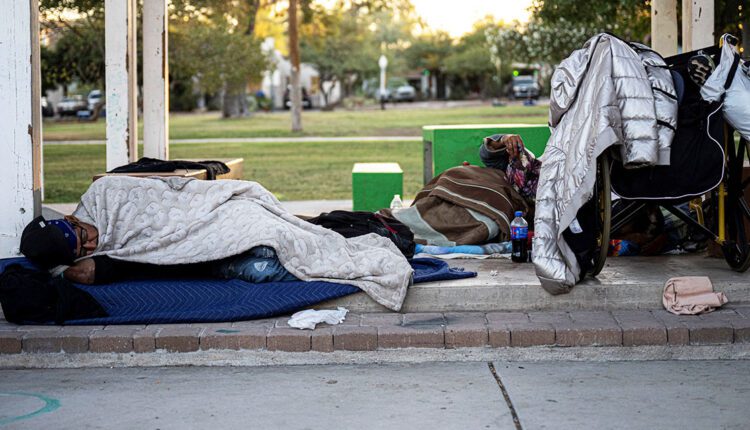
TL/DR –
Arizona state court has ruled that Tucson city can be held responsible for the “public nuisance” caused by a growing homeless encampment. This case, along with similar lawsuits in Phoenix and across the country, mark significant developments in holding policymakers accountable for the crisis of street homelessness. Legal and legislative strategies are being used across the country to address issues of homelessness, with the situation in Boise, Idaho potentially converging both as it awaits the mayor’s response to a state law banning public camping.
Arizona Street Homelessness Legal Battle Continues
Arizona is once again embroiled in a legal battle due to escalating street homelessness. The state’s Court of Appeals overturned a previous ruling in May, suggesting that Tucson can be held accountable for failing to manage the “public nuisance” of a homeless encampment.
This development is another legal hurdle for an Arizona city and a victory for advocates demanding more decisive action. In 2021, Phoenix officials agreed to a $300,000 settlement with business owners dissatisfied with the city’s handling of a massive homeless population known as “The Zone.” The homeless population in Tucson and Phoenix has increased by 3.5 times and more than 60%, respectively, since 2019.
National Legal Action Against Homelessness
These lawsuits highlight a wider effort to hold policymakers accountable for the growing homelessness crisis. As more cities face settlements and are compelled to adhere to consent decrees, officials’ responsibility to maintain public spaces becomes undeniable.
Nationally, legal action has grown. A federal court settlement between the L.A. Alliance for Human Rights and Los Angeles officials is being challenged for non-compliance. In Oregon, a Supreme Court ruling found local officials had no federal restrictions on controlling public sleeping.
Reforming Homelessness: Legislative and Legal Strategies
While litigation has proven effective for reform advocates, it has limitations. Activists are now focusing on legislation, tracking the spread of state legislation that aims to restrict street camping and redesign homeless-service funding.
This dual strategy of litigation and legislation may soon converge in Boise, Idaho. Residents anticipate the mayor’s reaction to a recently enacted state law banning public camping, which takes effect July 1. If the city fails to comply, the state attorney general has the power to sue.
As city leaders ignore street homelessness, residents may look to the legal strategies used in Tucson and Phoenix. This may lead to cities being financially liable for public nuisances created by failed policies and ineffective leadership.
Devon Kurtz, director of public safety policy at the Cicero Institute.
Photo by ERNESTO BENAVIDES/AFP via Getty Images
City Journal is a publication of the Manhattan Institute for Policy Research (MI), a free-market think tank. As a 501(c)(3) nonprofit, donations in support of MI and City Journal are tax-deductible (EIN #13-2912529).
—
Read More US Political News
